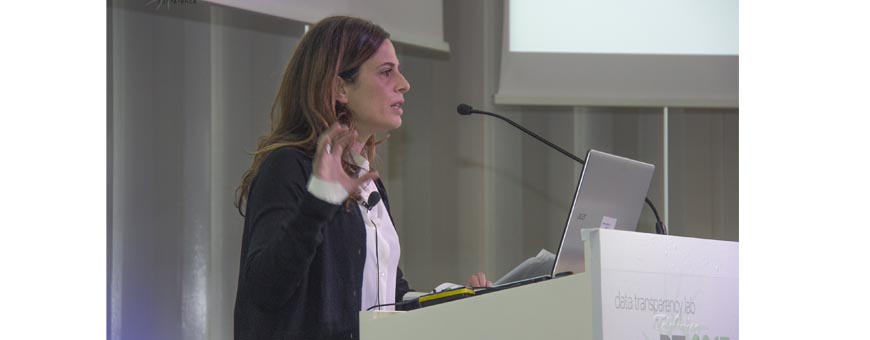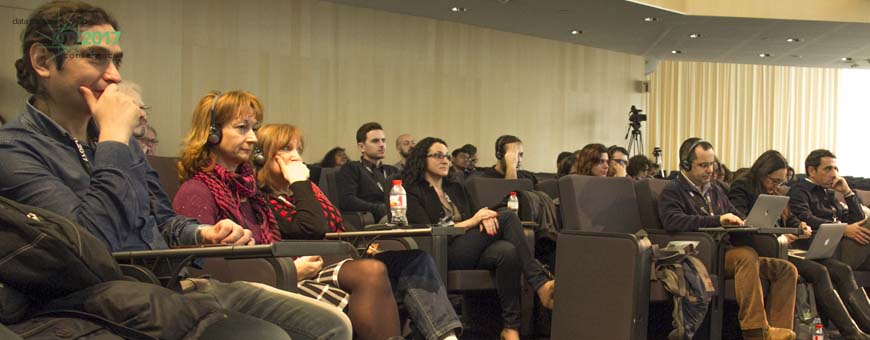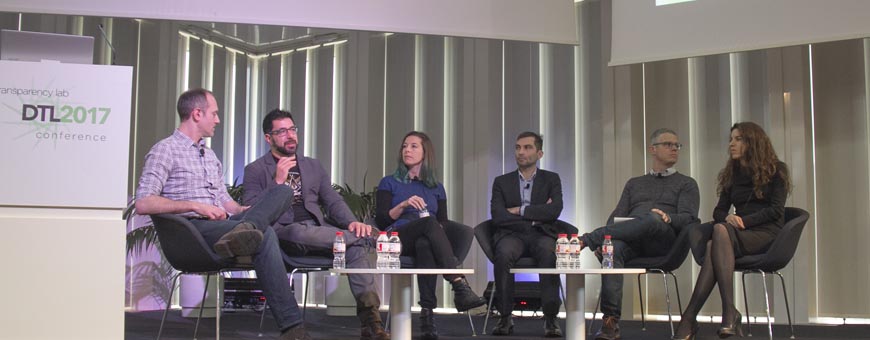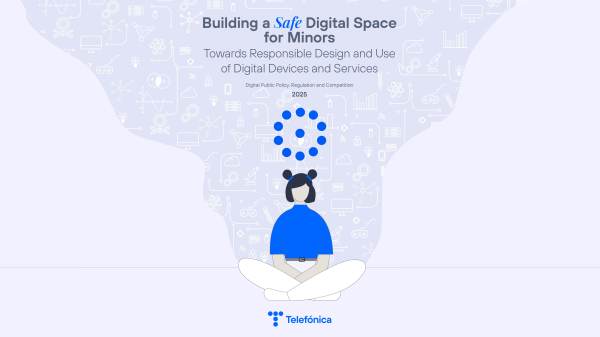RELATED POSTS
The Data Transparency Lab (DTL) held its 4th Annual Conference last week at Telefónica headquarters in Barcelona. The event brought together more than 85 companies of 15 nationalities, experts in the protection and investigation of personal data online.
For two days, world experts from different fields discussed about real cases, tools and legal data management environments that empower users and show how companies exploit their personal information. Besides, Nikolaos Laoutaris, Chief Scientist of the DTL, introduced the winners of the Grants Program of the DTL 2017.
Francesca Bria, commissioner of Technology and Digital Innovation of Barcelona City Council, opened the event in which she advocated to turn Barcelona into the capital of technology and ethical transparency of data for the common good of citizens.
“We want to use data and technology to improve the lives of citizens and create value for them. We need a strong ecosystem with research centers, universities, start-ups and investment by the public sector. We are working to ensure that data is a common asset and that companies can create services focused on data management and privacy by design”, said Francesca.
For this reason, Ramón Sangüesa, coordinator of the DTL, announced that Barcelona will be the permanent venue of the event after having held its previous editions at MIT in Boston and Columbia University in New York.

Francesca Bria
Tools for data transparency
The first session, conducted by David Choffnes, Assistant professor at Northeastern University, dealt with “Tools for data transparency”. Franck Baudot, Privacy Engineer at the Commission Nationale de l’Informatique et des Libertés, said that “there is a need to create tools that show the user the information that is being generated”. In the meanwhile, Andrea Martens, Senior Economist at the European Commission, and Kashmir Hill, reporter at Gizmondo, stressed that one of the biggest challenges we face in creating these tools is that public procurement rules need to be approved to create them. Moreover, they also added that such research is very complex since each user wants to know different things, which in turn creates different restrictions.
Disruptive approaches in transparency: Implementing Transparency
Josep María Pujol, Scientific Director of Cliqz, moderated the next roundtable where it was debated whether the user knows the importance of privacy and stressed the role of search engines as tools that filter what the user is watching and looking for. Jean-Paul Schmetz, founder and CEO of Cliqz, submitted that we do not need to infringe the user’s privacy for advertising since it has been around for a long time and has always seemed to work. For his part, Andrei Sambra, Technology Lead of Qwant, added that no one really knows why they need more data from users since having so much information becomes a complex activity that needs to be categorized.
Value creation from data transparency for users and companies
As last panel of the day, Nathan Kinch, Founding Partner of >X; Valérie Peugeot, Digital Studies Researcher at Orange Labs; Manish Bahl, Senior Director of the Center for the Future of Work in Cognizant and James Harvey, Product designer at Ascential discussed about “the value creation from data transparency for users and companies”. The panelists concluded the day by discussing how users want rights in the control of their data and by giving them a focused environment, with integrity, simple and sure will achieve a progress in transparency.

Day 2
The second day of the Conference was opened by Isabella de Michelis, CEO and founder of Earnieapp: “Users are an essential part of creating value and therefore they need tools that are easy to use and that everyone can use and give consent in it. On the other hand, companies must know how to differentiate which data, created by the user, are of value among the large quantity that exists”, she commented.
How to Foster the progress of transparency
Nozha Boujemaa, Inria Research Director, Director of DATAIA Institute & TransAlgo Project Leader, started the session indicating that transparency should be made between the data and the algorithms, since the algorithms are encapsulated opinions that are given through decision parameters and learning data. Lofred Madzou and Judith Herzog of the Conseil National du Numérique demanded transversal principles in our society since we need to trust real users since they are the ones who are sharing apps and their testimonies with them.
Usable Transparency in the time of AI and Machine Learning
Paolo Ciuccarelli, Associate Professor at the Politecnico de Milano, wanted to emphasize that the simple explanation of the algorithms of Artificial Intelligence and Machine Learning are necessary for users concerned about their personal data. José Ramón Gómez Utrilla, Manager of the 4th Platform and Aura at Telefónica, stated that the objective of Artificial Intelligence should be to create a relationship with the client based on trust.
Discrimination and data Ethics
The last panel was led by Simone Fischer-Hüber, professor at Karldstad University, who opened the discussion on “Discrimination and data ethics”. Julia Stoyanovich, professor at Drexel University, said that “the data life cycle is a responsible science that begins with the conscious data collection, exchange, integration, consultation, classification and responsible management of data”.

To learn more, follow us on our accounts: Twitter, visiter the website of Transparency Data Lab or suscribe to our newsletter.






